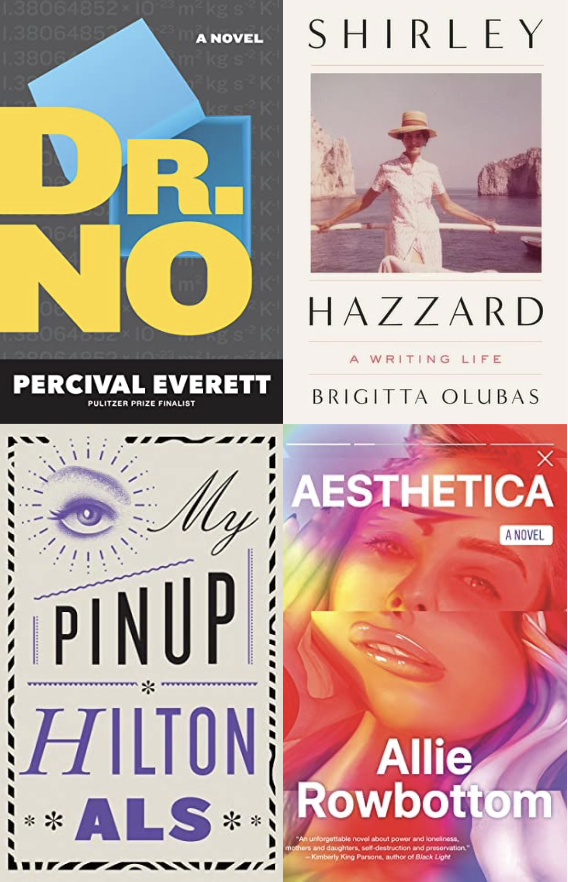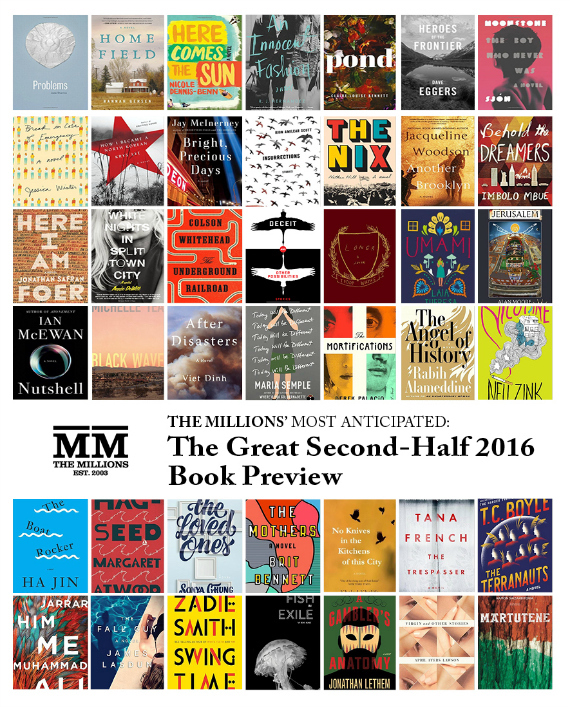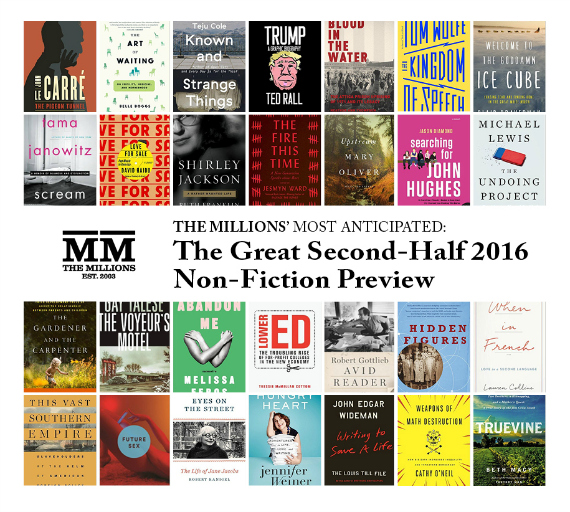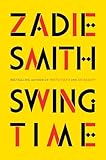We wouldn’t dream of abandoning our vast semi–annual Most Anticipated Book Previews, but we thought a monthly reminder would be helpful (and give us a chance to note titles we missed the first time around). Here’s what we’re looking out for this month. Let us know what you’re looking forward to in the comments!
Want to know about the books you might have missed? Then go read our most recent book preview. Want to help The Millions keep churning out great books coverage? Then sign up to be a member today.
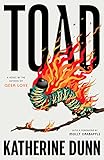 Toad by Katherine Dunn: The previously unpublished novel of Katherine Dunn, a novelist and boxing journalist who died in 2016. Toad tells the story of Sally Gunnar, who is reclusive but keeps company with a goldfish, a garden toad, and a door-to-door salesman. It’s billed as the perfect precursor to Dunn’s Geek Love, which, published in 1989, was a finalist for the National Book Award and the Bram Stoker Prize. Toad has the “same keen observations, taboo-shirking verve, and singular characters,” the publisher says, “that made Geek Love a cult classic.” (Claire)
Toad by Katherine Dunn: The previously unpublished novel of Katherine Dunn, a novelist and boxing journalist who died in 2016. Toad tells the story of Sally Gunnar, who is reclusive but keeps company with a goldfish, a garden toad, and a door-to-door salesman. It’s billed as the perfect precursor to Dunn’s Geek Love, which, published in 1989, was a finalist for the National Book Award and the Bram Stoker Prize. Toad has the “same keen observations, taboo-shirking verve, and singular characters,” the publisher says, “that made Geek Love a cult classic.” (Claire)
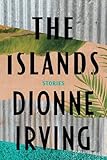 The Islands by Dionne Irving: A collection of stories of women in diaspora, leaving Jamaica and the effects of colonialism and looking for new places to set down roots, from 1950s London to 1960s Panama to the New Jersey of today, in a collection that Vanessa Hua calls “”By turns mordant and poignant…a deeply moving exploration of diaspora. Her dazzling cast of characters search for home and belonging. Incisive and impressive.” (Lydia)
The Islands by Dionne Irving: A collection of stories of women in diaspora, leaving Jamaica and the effects of colonialism and looking for new places to set down roots, from 1950s London to 1960s Panama to the New Jersey of today, in a collection that Vanessa Hua calls “”By turns mordant and poignant…a deeply moving exploration of diaspora. Her dazzling cast of characters search for home and belonging. Incisive and impressive.” (Lydia)
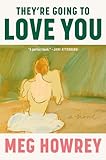 They’re Going to Love You by Meg Howrey: Howrey’s (The Wanderers) newest novel oscillates between New York City during the AIDS crisis and present-day Los Angeles. Growing up, Carlisle would travel from Ohio to New York to spend a few weeks in the summer with her father Robert and his partner James in their Greenwich Village brownstone. Drawn to the ballet world, like her mother before her, Carlisle dreams of living with her father full time—until an affair irreparably changes their family dynamic forever. Chloe Angyal says: “Howrey’s moving, taut prose has captured the sacredness and profanity of ballet, family, and of life itself.” (Carolyn)
They’re Going to Love You by Meg Howrey: Howrey’s (The Wanderers) newest novel oscillates between New York City during the AIDS crisis and present-day Los Angeles. Growing up, Carlisle would travel from Ohio to New York to spend a few weeks in the summer with her father Robert and his partner James in their Greenwich Village brownstone. Drawn to the ballet world, like her mother before her, Carlisle dreams of living with her father full time—until an affair irreparably changes their family dynamic forever. Chloe Angyal says: “Howrey’s moving, taut prose has captured the sacredness and profanity of ballet, family, and of life itself.” (Carolyn)
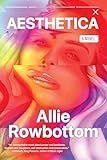 Aesthetica by Allie Rowbottom: An Instagram influencer past her prime at 35 considers a life-changing, life-altering new surgery to return her to original self in a novel that takes on mainstream aesthetics in the era of #MeToo, and arrives not a moment too soon, from the author of the acclaimed JELL-O Girls. Samantha Leach says of the novel “Much will be made of how perfectly Aesthetica captures influencer culture, but the genius of this novel is how far it extends past our current moment. In biting yet empathetic prose, Allie Rowbottom explores the ethos of American image making.” (Lydia)
Aesthetica by Allie Rowbottom: An Instagram influencer past her prime at 35 considers a life-changing, life-altering new surgery to return her to original self in a novel that takes on mainstream aesthetics in the era of #MeToo, and arrives not a moment too soon, from the author of the acclaimed JELL-O Girls. Samantha Leach says of the novel “Much will be made of how perfectly Aesthetica captures influencer culture, but the genius of this novel is how far it extends past our current moment. In biting yet empathetic prose, Allie Rowbottom explores the ethos of American image making.” (Lydia)
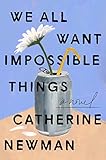 We All Want Impossible Things by Catherine Newman: You’re probably already familiar with Newman from her blogging, her memoirs, or her children’s books. If you’re a parent, someone has definitely emailed one of her essays to you. (“It Gets Better” is a classic.) We All Want Impossible Things is her first book for adults, a tearjerker about two lifelong friends, Edith and Ashley, who have known each other since they went to their first R.E.M. concerts. But now Edi is dying from ovarian cancer, and Ashley is trying to figure out how she’s going to get through the rest of her life without her best friend. KJ Dell’Antonia calls it “The funniest, most joyful book about dying—and living—that I have ever read.” (Hannah)
We All Want Impossible Things by Catherine Newman: You’re probably already familiar with Newman from her blogging, her memoirs, or her children’s books. If you’re a parent, someone has definitely emailed one of her essays to you. (“It Gets Better” is a classic.) We All Want Impossible Things is her first book for adults, a tearjerker about two lifelong friends, Edith and Ashley, who have known each other since they went to their first R.E.M. concerts. But now Edi is dying from ovarian cancer, and Ashley is trying to figure out how she’s going to get through the rest of her life without her best friend. KJ Dell’Antonia calls it “The funniest, most joyful book about dying—and living—that I have ever read.” (Hannah)
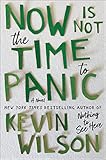 Now Is Not The Time to Panic by Kevin Wilson: In an interview for Entertainment Weekly, Wilson says that his fourth book is the one he’s been trying to write for years. It follows Zeke and Frankie, two teenaged kids who meet one summer in small-town Tennessee and forge a connection making art together. Years later, the events of that summer threaten to upend Frankie’s settled adult life. If you haven’t read a Kevin Wilson book, novelist and bookseller Emma Straub sums it up best: “just like all of Kevin’s books, Now Is Not The Time to Panic is totally its own thing: mysterious, hypnotic, wonderful. I love following his brain, wherever it goes.” (Hannah)
Now Is Not The Time to Panic by Kevin Wilson: In an interview for Entertainment Weekly, Wilson says that his fourth book is the one he’s been trying to write for years. It follows Zeke and Frankie, two teenaged kids who meet one summer in small-town Tennessee and forge a connection making art together. Years later, the events of that summer threaten to upend Frankie’s settled adult life. If you haven’t read a Kevin Wilson book, novelist and bookseller Emma Straub sums it up best: “just like all of Kevin’s books, Now Is Not The Time to Panic is totally its own thing: mysterious, hypnotic, wonderful. I love following his brain, wherever it goes.” (Hannah)
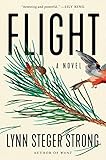 Flight by Lynn Steger Strong: Flight, the third novel by the author of the much-lauded Want, centers on a family reuniting for Christmas, their first holiday after the matriarch has died. Over three days they must face old conflicts and resentments, and figure out what to do with their mother’s house—and then a child from the town goes missing. Cynthia D’Aprix Sweeney promises, “You will want to gulp this down in one sitting,” and Rumaan Alam calls it, “Suspenseful, dazzling, and moving.” (Edan)
Flight by Lynn Steger Strong: Flight, the third novel by the author of the much-lauded Want, centers on a family reuniting for Christmas, their first holiday after the matriarch has died. Over three days they must face old conflicts and resentments, and figure out what to do with their mother’s house—and then a child from the town goes missing. Cynthia D’Aprix Sweeney promises, “You will want to gulp this down in one sitting,” and Rumaan Alam calls it, “Suspenseful, dazzling, and moving.” (Edan)
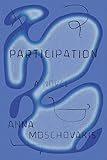 Participation by Anna Moschovakis: Author, poet, and translator Anna Moschovakis, in conversation about her first novel, Eleanor, or, the Rejection of the Progress of Love, asks, “What is the political value of a feeling? To feel bad about events in the world. To feel guilty. To feel implicated in the systems we participate in. What is the status of those feelings?” It seems that her second novel, Participation, is an elaboration upon these questions, as it examines communication in the time of rupture. Within, two reading groups, Love and Anti-Love, fall apart among political upheaval and environmental collapse and results in a mirroring and refraction of out current state of being. As Dana Spiotta says, “Moschovakis is a brilliant and singular writer with a terrific feel for this cultural moment.” (Anne)
Participation by Anna Moschovakis: Author, poet, and translator Anna Moschovakis, in conversation about her first novel, Eleanor, or, the Rejection of the Progress of Love, asks, “What is the political value of a feeling? To feel bad about events in the world. To feel guilty. To feel implicated in the systems we participate in. What is the status of those feelings?” It seems that her second novel, Participation, is an elaboration upon these questions, as it examines communication in the time of rupture. Within, two reading groups, Love and Anti-Love, fall apart among political upheaval and environmental collapse and results in a mirroring and refraction of out current state of being. As Dana Spiotta says, “Moschovakis is a brilliant and singular writer with a terrific feel for this cultural moment.” (Anne)
 Dr. No by Percival Everett: What’s it mean to be an expert on nothing? In my life, not much, but in mathematics, something cool. However it seems professor Wala Kitu can be manipulated—by a villain who wants convinces him to help break into Fort Knox and steal a box of nothing. Once attained, nothing is going to spread… but you’ll need to read Everett’s caper to see exactly how. (Nick M.)
Dr. No by Percival Everett: What’s it mean to be an expert on nothing? In my life, not much, but in mathematics, something cool. However it seems professor Wala Kitu can be manipulated—by a villain who wants convinces him to help break into Fort Knox and steal a box of nothing. Once attained, nothing is going to spread… but you’ll need to read Everett’s caper to see exactly how. (Nick M.)
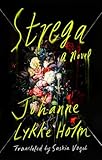 Strega by Johanne Lykke Holm: A group of nine teenagers go to work in a Gothic Alpine hotel where things go awry and one of them disappear in a novel that was short-listed for the European Union Prize for Literature. (Lydia)
Strega by Johanne Lykke Holm: A group of nine teenagers go to work in a Gothic Alpine hotel where things go awry and one of them disappear in a novel that was short-listed for the European Union Prize for Literature. (Lydia)
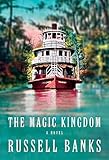 The Magic Kingdom by Russell Banks: Two-time Pulitzer finalist Banks returns with a novel about Harley Mann, a property speculator, who is recording his life story. As he remembers his past, Harley ruminates on his participation in a Shaker community in the Florida swamplands—and how his life was forever changed by the search for utopia. Paul Auster says: “Banks is still working at full blast, creating work as good as anything he has ever done and—is it possible?—perhaps even better.” (Carolyn)
The Magic Kingdom by Russell Banks: Two-time Pulitzer finalist Banks returns with a novel about Harley Mann, a property speculator, who is recording his life story. As he remembers his past, Harley ruminates on his participation in a Shaker community in the Florida swamplands—and how his life was forever changed by the search for utopia. Paul Auster says: “Banks is still working at full blast, creating work as good as anything he has ever done and—is it possible?—perhaps even better.” (Carolyn)
 My Pinup by Hilton Als: The electric critic, essayist, and Pulitzer Prize winner Als follows White GIrls with a two-part memoir, ranging over his own life and others, including Prince and Dorothy Parker, with scenes from queer nightlife and the AIDS crisis. (Lydia)
My Pinup by Hilton Als: The electric critic, essayist, and Pulitzer Prize winner Als follows White GIrls with a two-part memoir, ranging over his own life and others, including Prince and Dorothy Parker, with scenes from queer nightlife and the AIDS crisis. (Lydia)
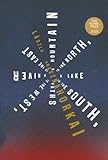 A Mountain to the North, a Lake to the South, Paths to the West, a River to the East by Lászlo’ Krasznahorkai (translated by Ottilie Mulzet): Described by the publisher as “an unforgettable meditation on nature, life, history, and being”, I can offer that this is the author’s most vatic work, which is saying something. It’s the simple story of a prince who sets off in search of the most sublime garden of all and indeed, may have found it in an ancient Kyoto monastery. In this brief novel, Krasznahorkai’s studied stream of consciousness narrative style is marked by the hermeneutic gaps characteristic of haiku and its requirements to read between the lines and devote time for silent contemplation of what is read. Quite beautiful. – (Il’ja)
A Mountain to the North, a Lake to the South, Paths to the West, a River to the East by Lászlo’ Krasznahorkai (translated by Ottilie Mulzet): Described by the publisher as “an unforgettable meditation on nature, life, history, and being”, I can offer that this is the author’s most vatic work, which is saying something. It’s the simple story of a prince who sets off in search of the most sublime garden of all and indeed, may have found it in an ancient Kyoto monastery. In this brief novel, Krasznahorkai’s studied stream of consciousness narrative style is marked by the hermeneutic gaps characteristic of haiku and its requirements to read between the lines and devote time for silent contemplation of what is read. Quite beautiful. – (Il’ja)
 The Age of Goodbyes by Li Zi Shu (translated by YZ Chin): The Age of Goodbyes explores how politics distort, erase, and scandalize personal memory. The novel contains three storylines: a conventional omniscient voice in the first narrative tells the fate of a woman—Du Li An—after Malaysia’s 1969 race riots; the second follows a close third-person narrative of a critic who investigates a writer also named Du Li An; the third thread is a second person narrative which assumes that “you” are trying to discover the truth of “your” family after “your” mother’s death. An acclaimed debut of one of Southeast Asia’s most renowned young writers, The Age of Goodbyes is an absolute gem that the Chinese literary world has to offer. (Jianan Qian)
The Age of Goodbyes by Li Zi Shu (translated by YZ Chin): The Age of Goodbyes explores how politics distort, erase, and scandalize personal memory. The novel contains three storylines: a conventional omniscient voice in the first narrative tells the fate of a woman—Du Li An—after Malaysia’s 1969 race riots; the second follows a close third-person narrative of a critic who investigates a writer also named Du Li An; the third thread is a second person narrative which assumes that “you” are trying to discover the truth of “your” family after “your” mother’s death. An acclaimed debut of one of Southeast Asia’s most renowned young writers, The Age of Goodbyes is an absolute gem that the Chinese literary world has to offer. (Jianan Qian)
 Shirley Hazzard by Brigitta Oluba: In the first biography about Shirley Hazzard (The Transit of Venus), scholar and editor Olubas offers a sweeping portrait drawn from the life, work, archives, photos and memories of the author. The book explores how Hazzard’s vibrant life—from her childhood in Sydney and Hong Kong to her young adulthood in New York City to her later years—informed her award-winning and enduring writing. A starred review in Kirkus calls the biography “an absorbing, well-crafted profile” where “Olubas offers a discerning, cleareyed perspective of Hazzard’s complex character and a persuasive appraisal of what distinguishes her work.” (Carolyn)
Shirley Hazzard by Brigitta Oluba: In the first biography about Shirley Hazzard (The Transit of Venus), scholar and editor Olubas offers a sweeping portrait drawn from the life, work, archives, photos and memories of the author. The book explores how Hazzard’s vibrant life—from her childhood in Sydney and Hong Kong to her young adulthood in New York City to her later years—informed her award-winning and enduring writing. A starred review in Kirkus calls the biography “an absorbing, well-crafted profile” where “Olubas offers a discerning, cleareyed perspective of Hazzard’s complex character and a persuasive appraisal of what distinguishes her work.” (Carolyn)
 Dawn by Sevgi Soysal (translated by Maureen Freely): The work of Turkish author and leftist activist Soysal is translated into English for the first time by Maureen Freely. Inspired by Soysal’s experience as a political prisoner after the ’71 coup, the book follows a group of dissidents at a dinner party whose night and lives are thrown into chaos when the police arrive and throw them in prison. As they are tortured and interrogated, the group is consumed by fear, paranoia, anger, and the flickering flame of hope and joy. Patty Dann says, “With the unflinching eye of a journalist and the sensitivities of a novelist, Soysal reveals one night of horror threaded with moments of possibility and human connection. Maureen Freely’s translation brings Soysal’s riveting words to a wider audience, one courageous woman’s story, a necessary story for our whole fragile world.” (Carolyn)
Dawn by Sevgi Soysal (translated by Maureen Freely): The work of Turkish author and leftist activist Soysal is translated into English for the first time by Maureen Freely. Inspired by Soysal’s experience as a political prisoner after the ’71 coup, the book follows a group of dissidents at a dinner party whose night and lives are thrown into chaos when the police arrive and throw them in prison. As they are tortured and interrogated, the group is consumed by fear, paranoia, anger, and the flickering flame of hope and joy. Patty Dann says, “With the unflinching eye of a journalist and the sensitivities of a novelist, Soysal reveals one night of horror threaded with moments of possibility and human connection. Maureen Freely’s translation brings Soysal’s riveting words to a wider audience, one courageous woman’s story, a necessary story for our whole fragile world.” (Carolyn)
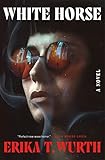 White Horse by Erica Wurth: Urban Native Kari James spends her days caring for her disabled father and her nights drinking, smoking, and headbanging at her favorite dive bar, White Horse. Kari has always run from her past, especially the mystery of her mother’s disappearance when she was a baby, but that all changes when her mother’s old bracelet is discovered. As she fumbles and scrapes her way toward the truth, Kari finds herself haunted by the literal and figurative ghosts of her past. About the debut literary horror novel, Stephen Graham Jones says: “It’s metal to the end, it’s Denver to the core, it’s Native without trying, there’s ghosts, there’s blood, there’s roller coasters, and there’s about a thousand cigarettes smoked. What else can you ask for in a novel?” (Carolyn)
White Horse by Erica Wurth: Urban Native Kari James spends her days caring for her disabled father and her nights drinking, smoking, and headbanging at her favorite dive bar, White Horse. Kari has always run from her past, especially the mystery of her mother’s disappearance when she was a baby, but that all changes when her mother’s old bracelet is discovered. As she fumbles and scrapes her way toward the truth, Kari finds herself haunted by the literal and figurative ghosts of her past. About the debut literary horror novel, Stephen Graham Jones says: “It’s metal to the end, it’s Denver to the core, it’s Native without trying, there’s ghosts, there’s blood, there’s roller coasters, and there’s about a thousand cigarettes smoked. What else can you ask for in a novel?” (Carolyn)
 Saha by Cho Nam-Joo (translated by Jamie Chang): National Book Award longlisted author Nam-Joo’s (Kim Jiyoung, Born 1982) newest novel is billed as a dystopian fable about corporate greed, social control, and inescapable wealth inequality. Saha Estates, an impoverished apartment complex, is home to the poorest residents (not citizens) in Town, the world’s most safe and rich nation. When a doctor is murdered, the secretive government body sets their eyes on Do-Kyung, a Saha resident living with his sister Jin-kyung. When Do-Kyung goes missing shortly after, Jin-Kyung knows what she must do but not how much it might cost her. (Carolyn)
Saha by Cho Nam-Joo (translated by Jamie Chang): National Book Award longlisted author Nam-Joo’s (Kim Jiyoung, Born 1982) newest novel is billed as a dystopian fable about corporate greed, social control, and inescapable wealth inequality. Saha Estates, an impoverished apartment complex, is home to the poorest residents (not citizens) in Town, the world’s most safe and rich nation. When a doctor is murdered, the secretive government body sets their eyes on Do-Kyung, a Saha resident living with his sister Jin-kyung. When Do-Kyung goes missing shortly after, Jin-Kyung knows what she must do but not how much it might cost her. (Carolyn)
 The Lemon by S. E. Boyd: Imbued with humor and heart, the debut novel by Boyd—composed of journalists Kevin Alexander and Joe Keohane, and editor Alessandra Lusardi—takes place in the aftermath of the death of John Doe, a beloved celebrity chef and culinary travel show host. Exploring the dog-eat-dog worlds of fine dining and trashy media, Kirkus’ starred review calls the novel “a hilarious, brilliant, cynical (and maybe even a little sad) takedown of the moral vacuum that is celebrity culture.” (Carolyn)
The Lemon by S. E. Boyd: Imbued with humor and heart, the debut novel by Boyd—composed of journalists Kevin Alexander and Joe Keohane, and editor Alessandra Lusardi—takes place in the aftermath of the death of John Doe, a beloved celebrity chef and culinary travel show host. Exploring the dog-eat-dog worlds of fine dining and trashy media, Kirkus’ starred review calls the novel “a hilarious, brilliant, cynical (and maybe even a little sad) takedown of the moral vacuum that is celebrity culture.” (Carolyn)
 Is This How You Eat a Watermelon? by Zein El-Amine: Lebanese-born poet and writer El-Amine’s debut collection features seven short stories that explore survival, joy, and the individual and shared trauma of war across Lebanon, Saudi Arabia, and the United States. Deesha Philyaw says: “These richly crafted stories are sometimes humorous, always compelling, meditations on love and passion, cruelty and beauty, and fear and loss during times of war, including the wars raging quietly inside of us.” (Carolyn)
Is This How You Eat a Watermelon? by Zein El-Amine: Lebanese-born poet and writer El-Amine’s debut collection features seven short stories that explore survival, joy, and the individual and shared trauma of war across Lebanon, Saudi Arabia, and the United States. Deesha Philyaw says: “These richly crafted stories are sometimes humorous, always compelling, meditations on love and passion, cruelty and beauty, and fear and loss during times of war, including the wars raging quietly inside of us.” (Carolyn)
